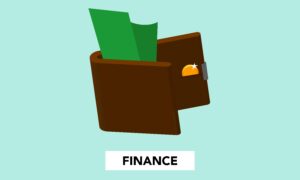What Are the Go-To Methods for Negotiating Better Deals and Saving Costs in Personal Finances?
In the quest for financial savvy, we’ve gathered the wisdom of CEOs and directors to share their personal tactics for sharpening negotiation skills and cutting costs. From setting your price confidently to using silence as a strategic tool, explore the twelve diverse and proven strategies that have shaped their financial success.
- Set Your Price Confidently
- Research and Politely Ask
- Leverage Online Coupons
- Shop Around for Better Deals
- Negotiate Down From Premium Options
- Hunt for Discounts and Ask
- Build Relationships for Better Terms
- Use Empathy and Open-Ended Questions
- Negotiate With Thorough Research
- Start Below Your Willing Price
- Negotiate for Additional Benefits
- Use Silence to Your Advantage
Set Your Price Confidently
From a vantage point, it’s good to be the first person to say a price—whether you’re the buyer or the seller. However, confidence in your valuation is key. Too many people ask for salaries slightly higher than their previous ones, only to find out later that the employer was willing to pay much more. Employers rarely negotiate salaries upwards. Research the proper valuation range and set your price at the advantageous end of that spectrum. High if you’re selling, low if you’re buying. Just make sure you don’t overshoot the range so much that you scare the other party away.
Over time, these savings add up. For example, I once saved several hundred dollars on a major plumbing job just by starting the negotiation with a lower offer.
Gary Gray, CEO, CouponChief.com
Research and Politely Ask
One method I’ve found effective for negotiating better deals and saving costs is the “research and ask” approach. Before making any significant purchase or signing up for a service, I make sure to do my research and find out what competitors are offering.
Armed with that information, you can confidently ask the provider for a better rate, additional benefits, or some kind of discount that will convince you to go with them over a competitor. This strategy has consistently saved me money on utilities, insurance, and even some retail purchases.
The key is in your approach—be polite but assertive, and show that you’re informed. You’ve also got to be ready to walk away from a deal if you’re not satisfied. Sales assistants will pick up on your energy if you are genuinely comfortable with saying no and moving on, so be patient in negotiations and don’t be afraid to ask for a minute to think it over before going back with a yes or no.
Erika Kullberg, Attorney, Money Expert, and Founder, Erika.com
Leverage Online Coupons
My personal method for cost-saving involves strategically leveraging online coupons. When shopping online, I always check for deals on our platform, which collects promo codes from more than 30,000 brands.
Two practical tips that have worked for me are: first, cart your desired items and wait. Retailers often send promotional codes when they notice inactivity. Second, multiple discounts can sometimes be stacked. For instance, I’ve employed a site-wide discount on a discounted item, creating a “double-dip” discount.
These strategies have drastically reduced my expenditure and positively impacted my financial situation, freeing funds for investments.
Oleg Segal, CEO & Founder, DealA
Shop Around for Better Deals
One trick I’ve gotten better at over the years to land better deals and save some serious cash is always to shop around during negotiations. As someone deeply embedded in finance, I always advise collecting various quotes from different vendors. Here’s why: when you show them you have options, they’re more likely to sweeten the deal to win you over, no matter what company you’re dealing with or what you’re purchasing.
I’ve used this method myself—it’s not just talk. Presenting multiple competitive offers can push sellers to give you lower rates and better options. This strategy can consistently slash pricing and help you find the best deals available!
Gary Hemming, Commercial Lending Director, ABC Finance Limited
Negotiate Down From Premium Options
My dad taught me how to negotiate as a kid, and it’s stayed with me until now. The trick is to start with the all-singing, all-dancing option. Opting for the full-spec product and negotiating the price down as far as possible is just the start. From there, remove extras, slashing the price further until you reach the level you’re actually looking for.
By starting at the highest ticket price, where the salesperson has far more wiggle room, you’re going to get the best discount possible. This technique works well with the big stuff, from kitchens to cars.
Matthew Consolo, Founder & CEO, Premier Point Vacations
Hunt for Discounts and Ask
One of the most effective methods I’ve employed for cost-saving is “hunting for discounts.” By consistently leveraging promotional offers and discounts, I was able to dramatically reduce my personal expenses on essential goods and services.
Another proven tip is utilizing the “ask and you shall receive” principle. It is surprising how often a simple inquiry can unlock unexpected discounts. For instance, I managed once to cut down my internet bill just by calling my provider, discussing my financial situation, and asking for a better deal. This not only reduced my monthly cost but also strengthened my relationship with the provider, leading to a win-win scenario. Applying these strategies has transformed my personal financial strategy by instilling a proactive approach towards securing better deals.
Nick Drewe, Founder & CEO, Wethrift
Build Relationships for Better Terms
Creating a friendly and respectful relationship is crucial when negotiating deals. I always make sure to express genuine interest in the other party’s perspective and needs. It’s not just about business; it’s about connecting on a human level.
On a personal level, this method has significantly impacted my financial well-being. Negotiating better deals on everyday expenses and services becomes easier when there’s a positive rapport. From getting discounts on home repairs to securing better rates for family vacations, building a good relationship often results in more favorable outcomes and considerable savings. This strategy has made a noticeable difference in managing both business budgets and personal finances efficiently.
Jessica Bane, Director of Business Operations, GoPromotional
Use Empathy and Open-Ended Questions
Always approach negotiations with empathy and genuine curiosity. Asking open-ended questions like, “What’s the best price you can offer?” often leads to surprising discounts. I once scored a 20% discount on a major appliance by simply listening and understanding the seller’s constraints. This approach doesn’t just save money; it builds trust and relationships, turning one-time deals into long-term savings. Seeing my savings grow monthly brings immense joy and financial relief.
Jason Higgs, Senior Deals Strategist, Bountii
Negotiate With Thorough Research
As an entrepreneur, I’ve honed my negotiation skills to secure the best possible deals.
My golden rule? Thorough research is non-negotiable. Before any major purchase or contract, I meticulously analyze comparable products or services, their pricing, and competitor offerings. Armed with this knowledge, I confidently negotiate from a position of strength, often resulting in substantial savings or added benefits.
For instance, when purchasing my car, I researched dealer invoice prices, financing options, and available rebates. This empowered me to negotiate a price significantly below the sticker price, saving thousands of dollars. This approach has consistently yielded impressive results, proving that knowledge is power in negotiations.
Chris Yang, Co-founder & CEO, Coins Value
Start Below Your Willing Price
Always aim lower than what you’re willing to pay for something. If you want to buy something for $100, start by offering $90. This forces the seller to negotiate, likely bringing the price closer to your target of $100. If they accept your offer of $90, you’ve saved $10 and done better than expected. Never reveal your actual target price; instead, offer a lower amount to give room for negotiation. Just be careful not to lowball too much, as this can leave a bad impression and cause the seller to walk away.
AL Tran, Realtor, Blogger, Author, Business owner, DS Inspire
Negotiate for Additional Benefits
Sometimes, prices are fixed and can’t be adjusted. In these cases, leveraging for additional benefits can be very effective. For instance, when I recently bought a high-end computer for my home office, the price was set in stone, but that didn’t deter me. Instead, I negotiated for extended warranties, complimentary technical support, and even free software upgrades. Vendors often have the leeway to offer these extras because they can be cheaper for them yet add significant value for you.
This approach has had a noticeable impact on my personal finances. It helps me avoid unexpected costs later on, like repairs or additional services, making my initial expenditure more worthwhile. Plus, getting these benefits can provide peace of mind, knowing you’re covered without extra out-of-pocket expenses. It’s a win-win situation that goes beyond saving money; it maximizes the overall value of your purchases.
Dr. Gregory Gasic, Co-Founder, VMeDx
Use Silence to Your Advantage
Using silence effectively has been a great tactic in my travel negotiations worldwide. When discussing prices for accommodations, tours, or even local markets, I’ve found that this technique has saved me a lot of money on my travels, allowing me to stretch my budget further and experience more.
Using silence effectively in negotiations works by creating psychological pressure on the other party. When you make an offer and then pause, the silence often makes the seller uncomfortable, prompting them to break it by either agreeing to your terms or offering a better deal. It’s a powerful tactic because it shows confidence and patience, making the other party feel compelled to respond more favorably.
It’s amazing how a little silence can make the other party reconsider their stance. I believe mastering this simple method has positively impacted my personal finances, giving me more freedom to enjoy my adventures without constantly worrying about costs.
Kevin Mercier, Founder, Travel Expert, KEVMRC TRAVEL
Related Articles
- How to Adapt Money-Saving Strategies to Changes in Personal Circumstances
- What Strategies Do Individuals Use to Save Money Effectively?

































